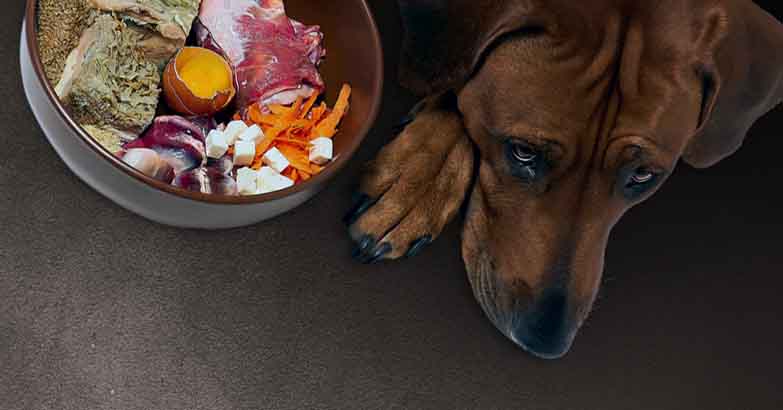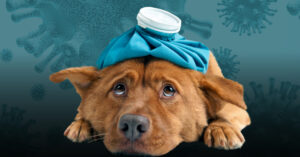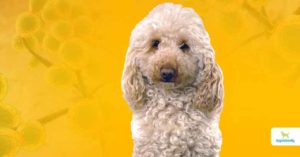Vitamin B12, also known as cobalamin, is a crucial nutrient for our furry friends. It plays a vital role in numerous bodily functions, including the formation of red blood cells, neurological function, and DNA synthesis.
However, B12 deficiency in dogs is more common than you might think, and it can lead to a variety of health issues, ranging from anemia and gastrointestinal problems to neurological disorders.
As a responsible pet owner, it’s essential to understand this deficiency, recognize its symptoms, and know how to prevent it.
This article will help you understand and address B12 deficiency in your dog, focusing not just on the physical symptoms, but also on your dog’s overall health and wellbeing.
What Is B12 Deficiency in Dogs?
Vitamin B12, also known as cobalamin, is a water-soluble vitamin that plays a crucial role in your dog’s body. It’s essential for the formation of red blood cells, neurological function, and DNA synthesis.
B12 is unique because it is the only vitamin that contains a trace element – cobalt.
In the body, it forms part of a coenzyme, a molecule that aids enzymes in their function. B12 is crucial for the normal functioning of the brain and nervous system, and for the formation of blood.
It’s involved in the metabolism of every cell of the body, especially affecting DNA synthesis and regulation, but also fatty acid and amino acid metabolism.
A deficiency in this vitamin can lead to a variety of health issues, including:
- Anemia
- Gastrointestinal problems
- Neurological disorders
Understanding this deficiency is the first step towards ensuring your dog’s optimal health. A holistic approach to managing B12 deficiency involves not just treating the symptoms, but addressing the root cause, which often lies in the diet and overall lifestyle.
Symptoms of B12 Deficiency in Dogs
These are some signs you might notice.
Lethargy
One of the most common signs of B12 deficiency in dogs is lethargy. Dogs may appear unusually tired or uninterested in activities they usually enjoy. This is because B12 plays a crucial role in energy metabolism. Without sufficient B12, your dog’s body may struggle to convert the food he eats into the energy he needs, leading to fatigue and lethargy.
Loss of Appetite
Another symptom of B12 deficiency is a loss of appetite. B12 is essential for a healthy digestive system, and a deficiency can lead to a range of digestive issues, including a decreased appetite. If your dog is eating less than usual or showing a lack of interest in food, it could be a sign of B12 deficiency.
Weight Loss
Weight loss can also be a sign of B12 deficiency. This is often linked to the loss of appetite mentioned above, but it can also be due to the body’s inability to properly absorb and use the nutrients in the food your dog eats. If your dog is losing weight despite eating a healthy diet, it’s important to consult your veterinarian.
Gastrointestinal Issues
B12 deficiency can lead to a range of gastrointestinal issues, including diarrhea, vomiting, and gas. This is because B12 plays a crucial role in supporting a healthy gut microbiome. A deficiency can disrupt the balance of bacteria in your dog’s gut, leading to digestive issues.
Neurological Symptoms
In severe cases, B12 deficiency can lead to neurological symptoms. These can include tremors, seizures, or ataxia (a loss of coordination). This is because B12 is essential for the health of the nervous system. If your dog is showing any of these symptoms, it’s crucial to seek veterinary care immediately.
Behavioral Changes
Finally, B12 deficiency can lead to behavioral changes in dogs. This can include increased irritability, anxiety, or depression. This is because B12 is important for brain function and mental health. If you notice any changes in your dog’s behavior, it’s important to consult with a veterinarian.
Causes of B12 Deficiency in Dogs
Here are some possible causes of B12 deficiency …
Poor Diet
One of the most common causes of B12 deficiency in dogs is a poor diet. Dogs that are not receiving a balanced diet rich in B12, which is found in animal-based products like meat, fish, and eggs, may develop a deficiency. This is particularly common in dogs that are fed a vegetarian or vegan diet without appropriate supplementation.
RELATED: How to evaluate dog food protein …
Malabsorption Issues
Some dogs may develop B12 deficiency due to malabsorption issues. This can occur when a dog has a health condition, such as inflammatory bowel disease or pancreatitis, that prevents their digestive system from properly absorbing nutrients from the food he eats.
Parasitic Infections
Parasitic infections, particularly those that affect the gastrointestinal tract, can also lead to B12 deficiency in dogs. Parasites can interfere with nutrient absorption, leading to deficiencies in B12 and other essential nutrients.
Chronic Pancreatitis
Chronic pancreatitis, a long-term inflammation of the pancreas, can lead to B12 deficiency in dogs. The pancreas plays a crucial role in digestion and nutrient absorption, and when it’s not functioning properly, it can lead to deficiencies in B12 and other nutrients.
Medications
Certain medications can also cause B12 deficiency in dogs. Some drugs, particularly those used to treat seizures and certain types of cancer, can interfere with B12 absorption and metabolism.
Age
Older dogs may be more prone to B12 deficiency. As dogs age, their ability to absorb nutrients from their food can decrease, leading to potential deficiencies in B12 and other essential nutrients.
How B12 Deficiency Affects Your Dog’s Digestive System
B12 deficiency can have a significant impact on your dog’s digestive system. It can lead to issues like poor appetite, weight loss, and gastrointestinal disorders.
B12 is also crucial for the gut microbiome, and a deficiency can disrupt the balance of bacteria in your dog’s gut, potentially leading to further digestive issues.
Treating B12 deficiency can be achieved through a balanced, nutrient-rich diet, regular exercise, and probiotic supplements to support a healthy gut microbiome.
It’s also important to minimize stress, as stress can have a negative impact on digestive health.
How To Prevent B12 Deficiency in Dogs
Preventing B12 deficiency in dogs mainly involves ensuring they receive a balanced and nutritious diet. Foods rich in B12 are typically animal-based products such as meat, fish, and eggs. Including these in your dog’s diet can help maintain healthy B12 levels.
However, it’s important to remember that every dog is unique, and dietary needs can vary based on factors like age, breed, size, and overall health.
In addition to a balanced diet, regular health check-ups are crucial. Routine veterinary examinations can help detect any potential health issues, including B12 deficiency, at an early stage. Your vet can use a simple blood test to check your dog’s B12 levels.
While diet plays a significant role in preventing B12 deficiency, overall lifestyle factors are also important. Regular physical activity helps maintain a healthy metabolism, which in turn supports the absorption and utilization of nutrients, including B12. Mental stimulation is equally important, as it helps keep the brain and nervous system active and healthy.
Lastly, maintaining a calm and stress-free environment for your dog can contribute to his overall wellbeing. Stress can have a negative impact on a dog’s health, including his digestive system where B12 is absorbed. Therefore, ensuring your dog feels safe and relaxed can indirectly help prevent B12 deficiency.
How To Boost B12 In Dogs Using Natural Ingredients
These are a few steps you can take to manage your dog’s B12.
Include B12-Rich Foods in The Diet
One of the most straightforward ways to boost B12 is by including B12-rich foods in your dog’s diet. Animal-based products such as meat, fish, and eggs are excellent sources of this vitamin. Organ meats like liver and kidney are particularly high in B12. If your dog is on a commercial diet, make sure it is high-quality and meets all the nutritional needs of your pet.
Consider B12 Supplements
If your dog’s diet alone isn’t providing enough B12, or if your dog has a condition that affects B12 absorption, your vet may recommend a B12 supplement. There are many natural supplements available that can help boost your dog’s B12 levels. Always talk to your vet before starting any new supplement regimen.
Regular Health Check-ups
Regular health check-ups are important to manage your dog’s B12 levels and overall health. Your vet can conduct a simple blood test to check your dog’s B12 levels and adjust his diet or supplements as needed. Regular check-ups can also help catch any potential health issues at an early stage.
Maintain an Active Lifestyle
Regular physical activity is important for maintaining a healthy metabolism, which in turn supports the absorption and utilization of nutrients, including B12. Regular walks, play sessions, and other forms of exercise can help keep your dog healthy and support his B12 levels.
Provide Mental Stimulation
Mental stimulation is equally important for your dog’s overall health. Activities that challenge your dog’s mind, such as puzzle toys, training sessions, and social interactions, can help keep their brain and nervous system healthy, which is important for maintaining healthy B12 levels.
Create a Stress-Free Environment
Finally, creating a stress-free environment for your dog can contribute to his overall wellbeing, which in turn can support healthy B12 levels. Stress can have a negative impact on your dog’s health, including his digestive system where B12 is absorbed. Therefore, ensuring your dog feels safe and relaxed can indirectly help boost his B12 levels.
Top 5 Foods Rich in B12 Vitamin
Consider including these foods in your dog’s diet.
Beef Liver
Beef liver is one of the richest sources of B12 available. It’s also packed with other essential nutrients like iron and vitamin A. However, due to its high vitamin A content, it should be fed in moderation to avoid vitamin A toxicity.
Fish
Fish, particularly sardines and salmon, are excellent sources of B12. They’re also rich in omega-3 fatty acids, which are beneficial for your dog’s skin, coat, and overall health. Make sure any fish you feed your dog is thoroughly cooked to kill any potential parasites.
Chicken
Chicken is another good source of B12 for dogs. It’s also a lean source of protein, making it a great choice for dogs twho need to watch their weight. As with all foods, it should be cooked thoroughly before feeding it to your dog to kill any potential bacteria.
Eggs
Eggs are a good source of B12 and are also packed with other essential nutrients like protein, riboflavin, and selenium. They can be a great addition to your dog’s diet, raw, or cooked.
Dairy Products
Dairy products like cheese and yogurt can provide a small amount of B12. They’re also a good source of calcium and other nutrients. However, some dogs may be lactose intolerant, so it’s important to introduce dairy products slowly and watch for any signs of digestive upset.
Conclusion
In conclusion, B12 deficiency in dogs is a serious condition that requires your attention.
However, with a holistic approach that focuses on a balanced diet, regular exercise, mental stimulation, and a stress-free environment, you can ensure your dogsgetsthe B12 he needs for optimal health.
If you suspect your dog has a B12 deficiency, it’s crucial to consult with a veterinarian for proper diagnosis and treatment.
Remember, every dog is unique, and what works for one might not work for another. Therefore, personalized care based on your dog’s specific needs is essential. By taking these steps, you can help ensure your furry friend lives a long, happy, and healthy life.












